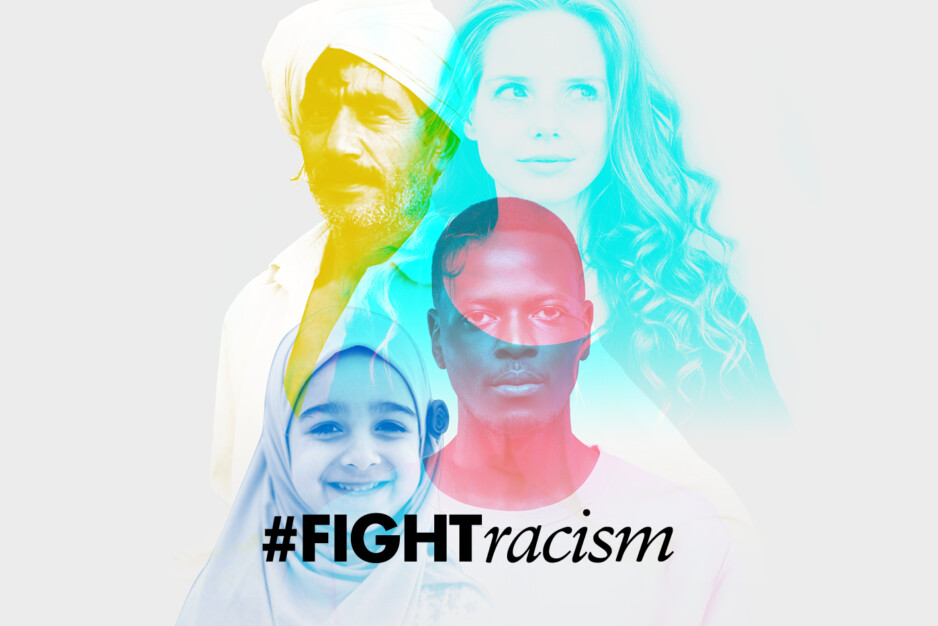History of International Day for the Elimination of Racial Discrimination
1. Origins of the International Day for the Elimination of Racial Discrimination
The International Day for the Elimination of Racial Discrimination was established by the United Nations in 1966 to commemorate the Sharpeville massacre in South Africa. This day serves as a reminder of the tragic events that sparked global efforts against racial discrimination.
2. Significance of the day in combating racism
The International Day for the Elimination of Racial Discrimination is a crucial opportunity to raise awareness about the negative impacts of racism and promote tolerance and acceptance. It encourages individuals and communities worldwide to stand against all forms of racial discrimination and work towards a more inclusive society.
United Nations’ Role
1. United Nations initiatives for eliminating racial discrimination
The United Nations has been at the forefront of global efforts to eradicate racial discrimination through various initiatives and campaigns. It actively promotes tolerance and equality to create a world free from discrimination based on race.
2. Impact of UN resolutions and campaigns
UN resolutions and campaigns have played a significant role in raising awareness about racial discrimination and fostering a culture of inclusivity. These efforts have mobilized nations and communities to take a stand against racism and promote unity among all peoples.
Theme of this Year’s Observation
1. Focus on promoting racial equality and diversity
The theme of this year’s observation is centred on promoting racial equality and embracing diversity. The aim is to encourage inclusivity, celebrate multiculturalism, and combat all forms of discrimination based on race. It underscores the importance of unity and mutual respect among individuals of different backgrounds.
2. Key messages and objectives for the year
Key messages include advocating for tolerance, understanding, and respect towards all races. Objectives focus on raising awareness about the challenges faced by marginalized communities, promoting equal opportunities for all, and fostering a sense of global solidarity. The goal is to inspire positive change and create a more harmonious society.

Global Events and Activities
1. Seminars, workshops, and conferences worldwide
The year’s theme focuses on promoting racial equality and diversity. Key campaigns advocate for tolerance and respect among all races. Global activities include seminars, workshops, and conferences to raise awareness on issues faced by marginalized communities and promote equal opportunities.
2. Community-driven efforts and awareness campaigns
Communities globally are engaging in initiatives to embrace diversity and combat discrimination. Efforts include community-driven programs and awareness campaigns to foster inclusivity and unity. The goal is to inspire positive change and solidarity among individuals of diverse backgrounds.

Addressing Systemic Racism
1. Establishing policies and frameworks to combat discrimination
Efforts worldwide focus on creating policies and frameworks aimed at eradicating discrimination based on race. By implementing measures to ensure equality and fairness, organizations strive to root out systemic racism and promote an inclusive society.
2. Strategies for addressing underlying causes of racial inequality
Global strategies are being developed to tackle the root causes of racial inequality. Initiatives target systemic issues that perpetuate discrimination, aiming to create lasting solutions that promote equity and unity among diverse populations.

Success Stories and Progress
1. Celebrating achievements in fighting racial discrimination
Efforts worldwide have led to substantial progress in combating racial discrimination. Policies and frameworks have been established to promote equality and inclusivity. Success stories highlight the positive impact of these initiatives in eradicating systemic racism and fostering a more equitable society.
2. Learning from successful initiatives and programs
Successful strategies have provided valuable insights into addressing the root causes of racial inequality. By learning from these initiatives, organizations can develop effective measures to promote unity and equity among diverse populations. Sharing and implementing such successful programs worldwide is crucial in driving positive change.

Generated Text:
Success Stories and Progress
1. Celebrating achievements in fighting racial discrimination
Efforts worldwide have led to substantial progress in combating racial discrimination. Policies and frameworks have been established to promote equality and inclusivity. Success stories highlight the positive impact of these initiatives in eradicating systemic racism and fostering a more equitable society.
2. Learning from successful initiatives and programs
Successful strategies have provided valuable insights into addressing the root causes of racial inequality. By learning from these initiatives, organizations can develop effective measures to promote unity and equity among diverse populations. Sharing and implementing such successful programs worldwide is crucial in driving positive change.
Challenges and Areas for Improvement
1. Persistent issues in eliminating racism globally
Despite advancements, challenges persist in eradicating racism on a global scale. The fight against racial discrimination requires continuous efforts to address deep-rooted biases and systemic inequalities. Collaborative actions and policies that prioritize inclusivity and diversity are essential to overcome these persistent challenges.
Success Stories and Progress
1. Celebrating achievements in fighting racial discrimination
Efforts worldwide have led to substantial progress in combating racial discrimination. Policies and frameworks have been established to promote equality and inclusivity. Success stories highlight the positive impact of these initiatives in eradicating systemic racism and fostering a more equitable society.
2. Learning from successful initiatives and programs
Successful strategies have provided valuable insights into addressing the root causes of racial inequality. By learning from these initiatives, organizations can develop effective measures to promote unity and equity among diverse populations. Sharing and implementing such successful programs worldwide is crucial in driving positive change.
Challenges and Areas for Improvement
1. Persistent issues in eliminating racism globally
Despite advancements, challenges persist in eradicating racism on a global scale. The fight against racial discrimination requires continuous efforts to address deep-rooted biases and systemic inequalities. Collaborative actions and policies that prioritize inclusivity and diversity are essential to overcome these persistent challenges.
Engaging Youth in Anti-Racism
1. Role of younger generation in promoting tolerance and inclusion
**Engaging the youth is crucial in promoting tolerance and inclusion. Young people play a vital role in challenging discriminatory attitudes and fostering acceptance. Their active involvement in advocating for equality helps shape a more inclusive society that values diversity and respects all individuals.
2. Youth-led initiatives for combating racial discrimination
Youth-led initiatives are instrumental in combating racial discrimination. Empowering young individuals to spearhead anti-racism efforts fosters innovative solutions and amplifies the voices of the marginalized. These initiatives promote awareness, education, and action, driving meaningful change towards a more equitable and just society.

Success Stories and Progress
- Celebrating achievements in fighting racial discrimination
Efforts worldwide have led to substantial progress in combating racial discrimination. Policies and frameworks have been established to promote equality and inclusivity. Success stories highlight the positive impact of these initiatives in eradicating systemic racism and fostering a more equitable society. - Learning from successful initiatives and programs
Successful strategies have provided valuable insights into addressing the root causes of racial inequality. By learning from these initiatives, organizations can develop effective measures to promote unity and equity among diverse populations. Sharing and implementing such successful programs worldwide is crucial in driving positive change.
Challenges and Areas for Improvement
- Persistent issues in eliminating racism globally Despite advancements, challenges persist in eradicating racism on a global scale. The fight against racial discrimination requires continuous efforts to address deep-rooted biases and systemic inequalities. Collaborative actions and policies that prioritize inclusivity and diversity are essential to overcome these persistent challenges.
Engaging Youth in Anti-Racism
- Role of younger generation in promoting tolerance and inclusion Engaging the youth is crucial in promoting tolerance and inclusion. Young people play a vital role in challenging discriminatory attitudes and fostering acceptance. Their active involvement in advocating for equality helps shape a more inclusive society that values diversity and respects all individuals.
- Youth-led initiatives for combating racial discrimination Youth-led initiatives are instrumental in combating racial discrimination. Empowering young individuals to spearhead anti-racism efforts fosters innovative solutions and amplifies the voices of the marginalized. These initiatives promote awareness, education, and action, driving meaningful change towards a more equitable and just society.

